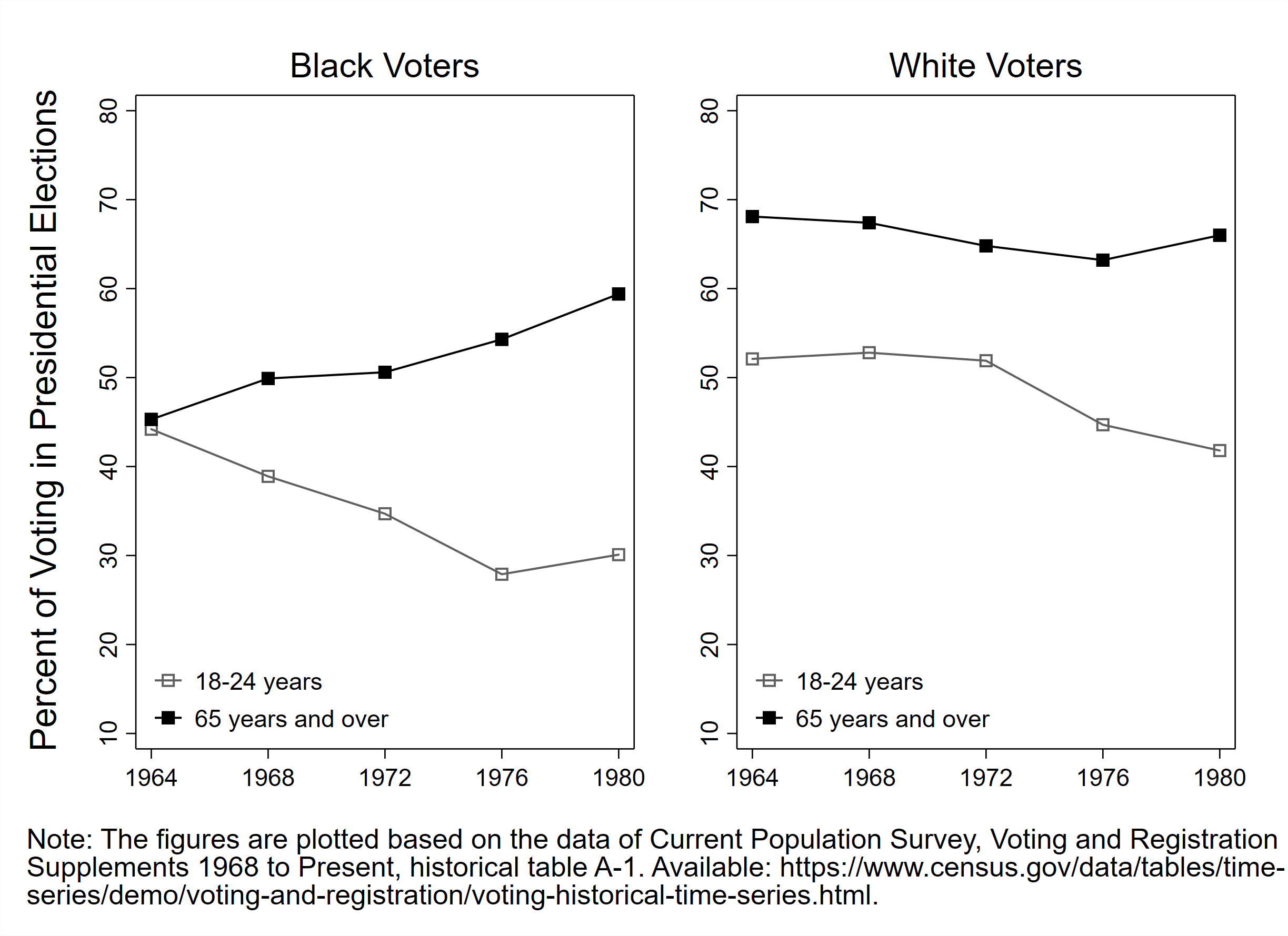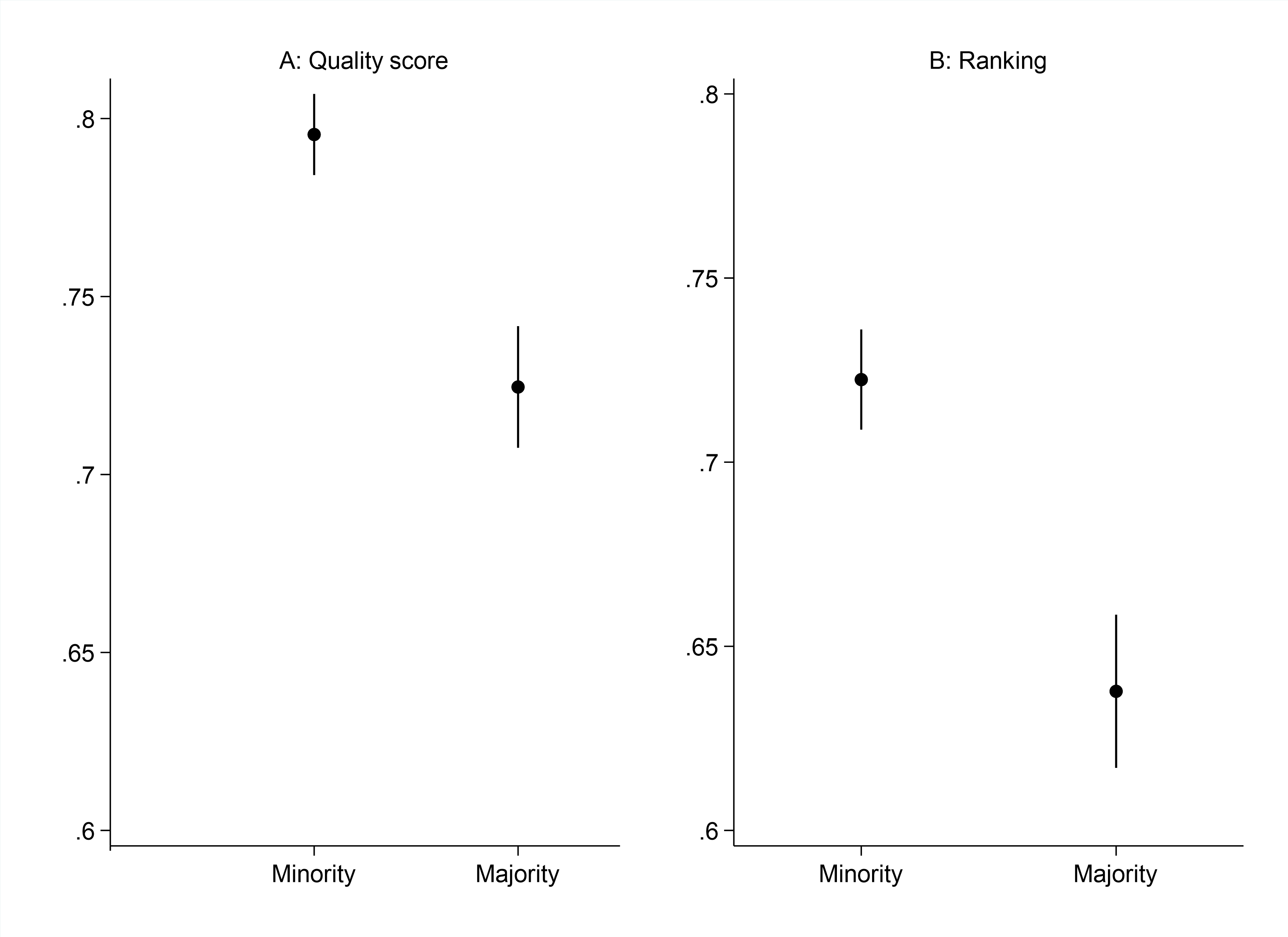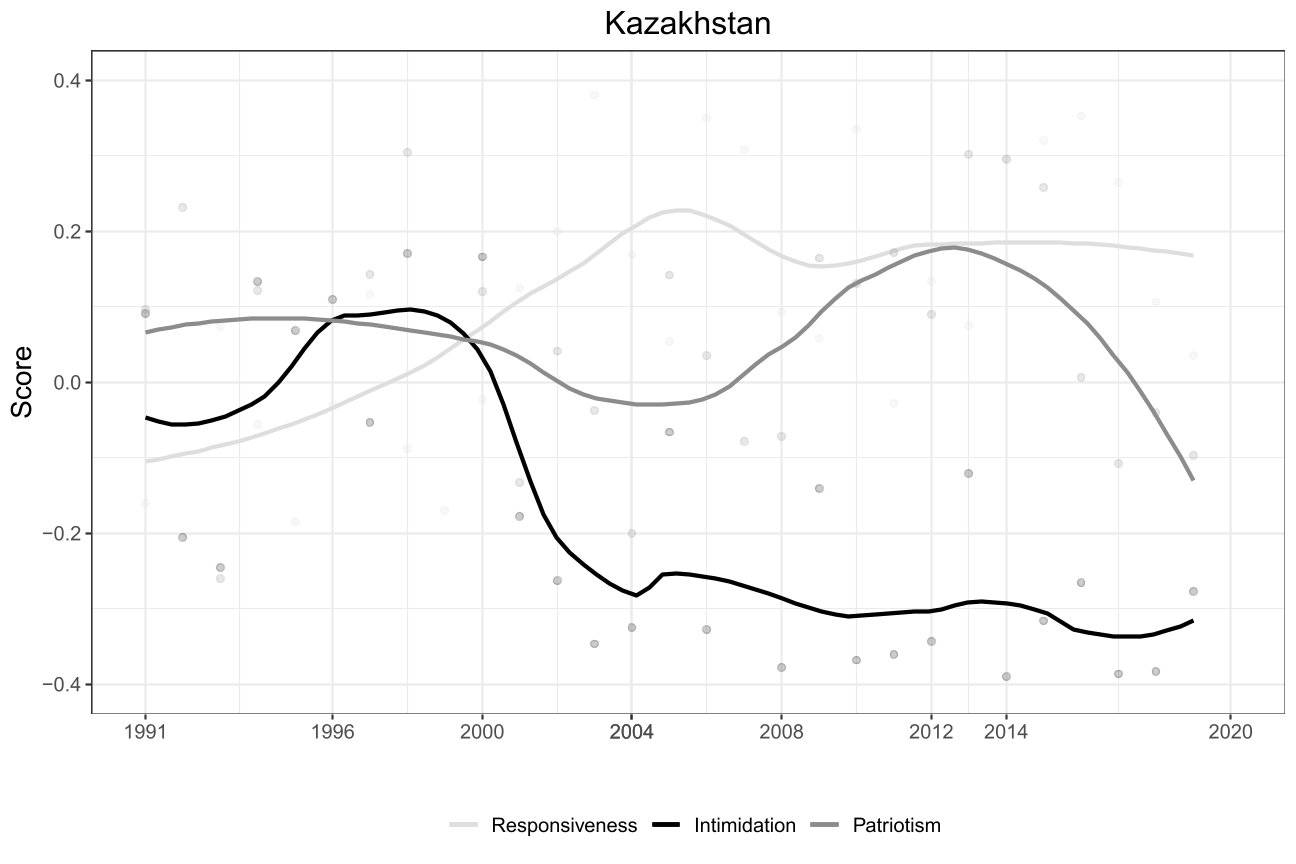Political power is a crucial driving force, shaping decision-making, access to resources, and social interactions. While this power struggle unfolds in legislative chambers and campaigns, it is not limited to politics alone; it influences our daily lives, from office politics to social dynamics. This intense competition can ripple through an individual’s financial and social landscape. The question is, how does the pursuit of political power affect our political behavior?
In “Race to the Top: How Competition for Political Power Affects Participation,” a recently published paper in the Journal of Politics, I investigate this question by using behavioral game-theoretical models and three laboratory experiments. I find that competition for political power causes voters to place more value on the importance of participation, and it triggers a strong desire to seek economic status by using power, which mobilizes political participation.
Enhancing the Intrinsic Value of Political Participation
The nature of how political power is obtained plays a pivotal role in shaping political behavior. When power is often tied to factors largely outside people’s control, such as their birth, ethnicity, or gender, the static allocation of power can lead to a passive approach to politics, as individuals have limited agency to change their circumstances. In contrast, earning political power imparts political behavior with a sense of intrinsic value. When individuals can actively influence their political status through competition, they take pride in their achievements. This sense of accomplishment and the ability to change their fate fosters heightened interest and active participation in politics. In the process of competition for power, individuals are motivated not just by the outcome but by the process itself. Their efforts to secure political power infuse their political participation with a unique significance.
Linking Power to Economic Status
Competition for political power often ignites a strong desire to influence economic outcomes. Given the interconnectedness of political and economic power, the policies crafted in the political arena can significantly impact the distribution of economic resources. In this context, political competition is not just about wielding power; it is about using it to shape economic well-being. Political power and economic status are intertwined. Individuals are motivated to seek economic status through their political influence, whether they win or lose in the power competition. The pursuit of political power, when coupled with the opportunity for competition and influence over economic outcomes, reverberates far beyond individual actions. It shapes the entire political landscape.
Experimental Evidence
In naturally occurring situations, it is challenging to precisely examine the aforementioned effects because an exact counterfactual is unobservable. Moreover, political power is hard to measure and record, and the process of earning power is even more difficult to construct using historical or contemporary data. I thus conducted three laboratory experiments to bypass these challenges. In Experiment I, we find that compared to the counterfactual in which competition for power is not an option, when participants have the opportunity to earn their power, they assign a significantly higher value to their political participation and, thus, vote more frequently. In Experiment II, we find that the effects identified in Experiment I are not explained by endogenous group formation or selection effect. In Experiment III, we find that the effects identified in Experiment I are not explained by strategic considerations.
Mapping the Experiments to Applications
My research can help explain, across political contexts, why individuals who directly or indirectly engaged in competition for political power are more likely to participate and use their influence. For example, the expansion of political rights due to the American civil rights movement had differential effects on political participation across generations. As illustrated in the left panel of the following Figure, older generations, who were more likely to have experienced segregation and engaged in the civil rights movement (i.e., 65+) were constantly and increasingly more likely to participate in presidential elections from 1964 to 1980. Conversely, younger generations (i.e., 18-24 years), born after the end of legal segregation with the protections granted by the Voting Rights Act and other civil rights legislation, were less and less likely to participate over time. Importantly, the voting rates of these two generations of Black voters were approximately the same in 1964. Meanwhile, compared to the generational differences among white voters demonstrated in the right panel of the Figure, the turnout rate of the elder white voters is relatively constant over time, with a slight decrease from 1964 to 1980, which is the opposite pattern of elder Black voters.
Comparing the generational differences among Black voters and white voters, we find a unique effect that the civil rights movement may have had on elder Black voters. Arguably, the civil rights movement is a competitive process for political power, mirroring the process outlined in my conceptual framework, which may promote elder Black voters’ political participation. The “Born Free’” generation who does not navigate competition for political power may devalue their political rights, and, thus less likely to participate than their grandparent’s or parent’s generation. My findings offer a potential explanation for the heterogeneity effects of the civil rights movement on the political participation of different generations of Black voters.
Another example is that, historically, men held more political power than women in most cultures. Being born a woman meant an individual had lower political status. Therefore, the assignment of their status at birth was as if it were randomized. However, the global rise of feminism and women’s rights advocacy expanded political rights, resulting in increased enfranchisement and representation. For example, during the 1940s and 1960s, women who were born between 1901 and 1916 are always more likely to turn out than women who were born between 1917 and 1932. A key difference between the two groups is that women who were born between 1901 and 1916 were not born with the right to vote. My work offers a novel explanation for this phenomenon: One of the reasons that the earlier cohort participated more in elections is that they directly or indirectly engaged in the competition for voting power.
Notes
Figure 1: Voting in Presidential Elections by Race and Age Group: 1964 to 1980. The figures are plotted based on the data of Current Population Survey, Voting and RegistrationSupplements 1968 to Present, historical table A−1. Available: https://www.census.gov/data/tables/time−series/demo/voting−and−registration/voting−historical−time−series.html.
This blog piece is based on the forthcoming Journal of Politics article “Race to the Top: How Competition for Political Power Affects Participation” by Kai Ou.
The empirical analysis has been successfully replicated by the JOP and the replication files are available in the JOP Dataverse.
About the Authors
Kai Ou is an Assistant Professor in the Department of Political Science at Florida State University. He studies behavioral choice patterns using theoretical and experimental tools. His research focuses on institutional effects on economic and political behavior. He studies voting and elections, political donation, and competition and coordination between ethnic groups. For more information, visit his website.




